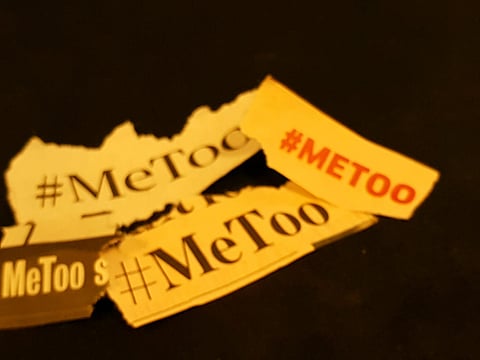
- News
- Columns
- Interviews
- Law Firms
- Apprentice Lawyer
- Legal Jobs
- हिंदी
- ಕನ್ನಡ

By Akshya and Kriti Chopra
With the ever-increasing list of alleged perpetrators, the Me Too movement has finally arrived in India. Soon after the crusade picked up its pace, it was criticized for the vigilante justice it aims to achieve, disregarding the principles of due process and natural justice.
While the newspapers are being filled with the “he said, she said” debate, we attempt to deconstruct the statutory provisions in place to tackle the menace of Sexual Harassment at the workplace, with the aim of providing an explanation to the rise in this movement.
The Sexual Harassment of Women at Workplace (Prevention, Prohibition and Redressal) Act, 2013 mandates the establishment of the Internal (Section 4 of the Act) and the Local Complaints Committee (Section 6), each having its well-defined jurisdiction and functions. On one hand, the Internal Complaints Committee is an in-house body aiming to eradicate the menace of Sexual Harassment within the organization, and on the other hand, the Local Complaints Committee aims to curb the menace of sexual harassment in the unorganized sector while supervising over the Internal Complaints Committees in its jurisdiction.
In order to understand the root cause for the sudden rise in the Me Too movement, we use a hypothetical example to illustrate.
Suppose X, a female employee, is being sexually harassed by her employer and after pondering upon the situation, she musters up the courage to approach the Internal Complaints Committee against the employer. She realizes that the employer, resorting to his position of power in the organization (the structure of Internal Complaints Committee as envisioned in Section 4 of the Act is such that it is bound to be manipulated or be biased towards the employer and the same was pointed out by Justice Verma Committee in its 2013 report), has influenced the Committee to an extent that instead of acting as X’s knight in shining armor, the Committee is now using its sword to assassinate her character.
Let down by this, X resorts to approach the Local Complaints Committee in her district against the violation of the principle of due process by the Internal Complaints Committee only to realize, yet again, that this mythical creature exists only on paper.
To illustrate this fact, an attempt was made to locate the Local Complaints Committee in Delhi. Two 2016 notifications of the Delhi government were found which listed out the members of the Local Complaints Committee for the South & South East district, with no details at all about how to contact or pursue with these Committees. This has led to such a situation that the law firms/lawyers, in the name of complying with this Act, are filing yearly reports of their clients either in the Labor Commissioner’s Office or in the Delhi Commission of Women.
Later, X gives it a one last shot and goes to her nearest police station to register her complaint, where even after half a decade of Lalita Kumari v. Union of India, getting a FIR registered is not less than a battle.
The demoralized X thus pours her heart out on social media for the world to read, in the hope that someone out there will hear her cries and help her get justice.
Before criticizing the naming of the alleged predator on social media, it is important to understand that the victim only resorts to such measures due to the unperturbed manner in which the statutory authorities handle complaints of sexual harassment at the workplace. While there is no denying that no one should be falsely crucified on social media, the fact of the matter is that the Act provides for a punishment in case of a malicious complaint (Section 14).
However, due to the nonchalant behavior of the statutory authorities, the falsely accused is also denied the due process of law, and all this while the debate surrounding the movement has turned into clamour. It doesn’t matter how many judicial commissions are being appointed, till the time the statutory provisions are being treated as a dead letter of law, a change in the current scenario is highly improbable.
Akshya is a legal adviser, and Kriti Chopra is an advocate currently pursuing her LL.M. in International Dispute Settlement.